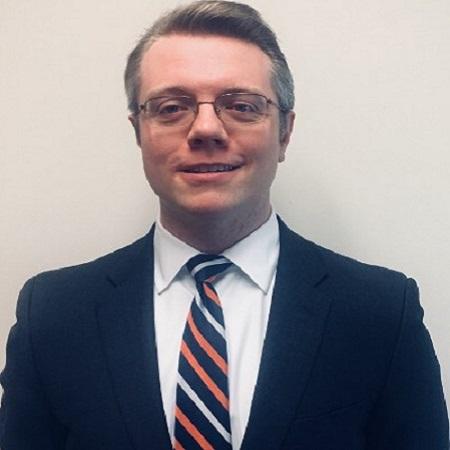

“It was, without a doubt, the best job I’ve ever had,” says George Burns, reflecting on his recent clerkship with Chief Judge Dora Irizarry of the Eastern District of New York. George exemplifies a growing trend in clerkship hiring: rather than clerking immediately after graduation, he practiced for several years, first as an Agency Attorney at the New York City Office of the Chief Medical Examiner, and then as an Assistant County Attorney in the Litigation Bureau of the Westchester County Attorney’s Office. But he “never lost sight of the idea” of clerking, and the Westchester County Attorney’s office generously granted George a one-year unpaid leave to serve as Judge Irizarry’s law clerk from September 2016 to September 2017.
While in Judge Irizarry’s chambers, George served as one of four law clerks. (Chief district judges are able to hire additional law clerks to help with their extra administrative responsibilities.) The cases were randomly distributed by docket number to the four clerks, so George worked on a tremendous range of issues, from the Fifth Amendment right against self-incrimination to RICO to employment discrimination. In addition to his behind-the-scenes work drafting opinions and orders, George assisted in many of Judge Irizarry’s courtroom proceedings, from oral arguments to trials and sentencings. And George, along with other Eastern District law clerks, had the chance to sit in on some of the highest-profile cases occurring in the EDNY during his time there, such as the Marvin Shkreli trial and the hearing on President Trump’s January 27, 2017 Executive Order on immigration.
Now back at the Westchester County Attorney’s Office, George reports that he has “taken all the knowledge and experience I gained from my clerkship and brought it back to my practice at the County.” His current responsibilities include taking and defending depositions, drafting and filing motions, negotiating settlements, and appearing at hearings and administrative proceedings on the County’s behalf. And George draws a straight line from his FJHP experience to his clerkship and work experience. “I think every internship helped make me a stronger candidate for future employment,” he observes. “The biggest benefits of participating in the FJHP are learning how judges and their clerks make decisions, strengthening one’s writing, gaining exposure to vastly different areas of law, and making connections with judges and their staffs. Over three years, we’re all taught in classrooms about law in the abstract; the FJHP gives students the opportunity to see theory in practice.”
George’s advice to FJHP students and alums applying for clerkships? First, make sure to follow the instructions in each judge’s job posting: “the most efficient way to thin the applicant pool at the outset,” he recalls, is to reject any applicant who failed to follow directions. Beyond that, “the most important thing to remember is that you have to show the judge that you are thoughtful and thorough—at the most fundamental level, a law clerk is the judge’s counsel.”
